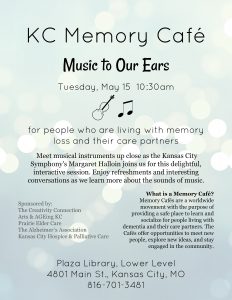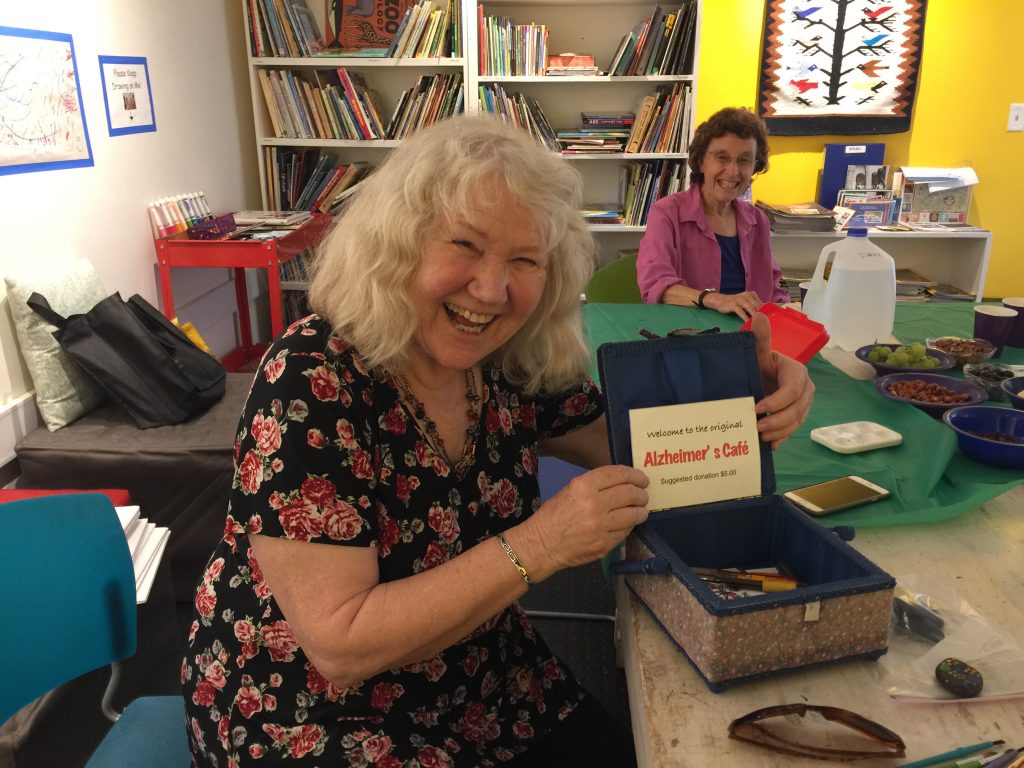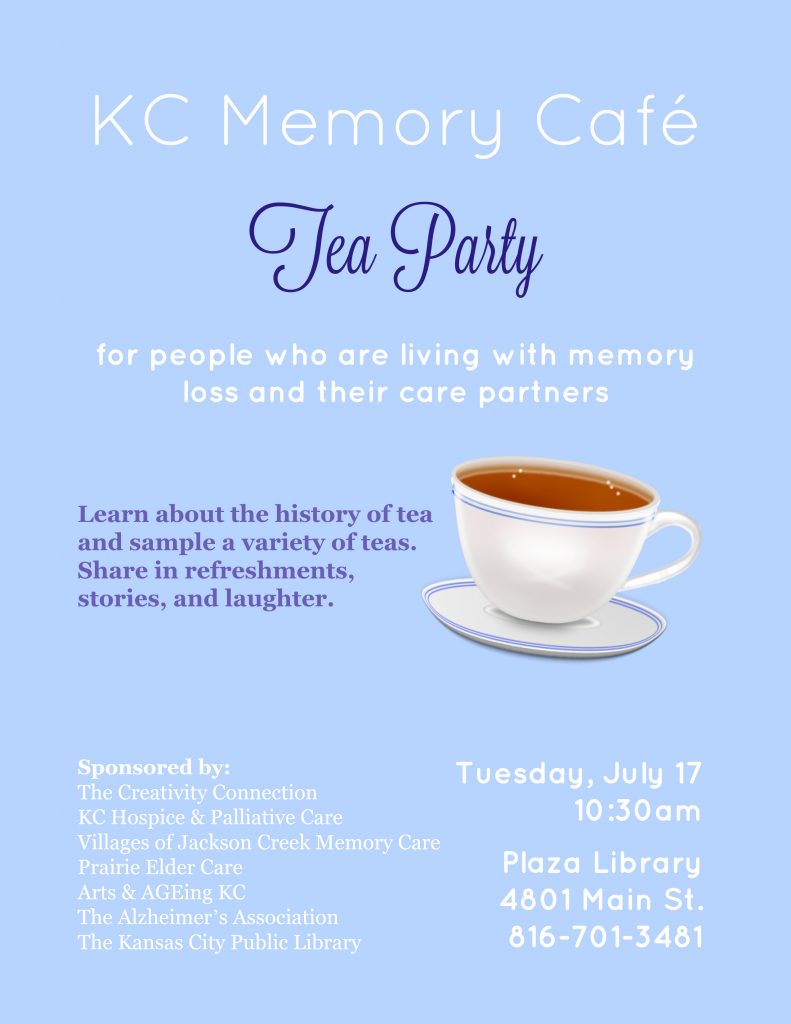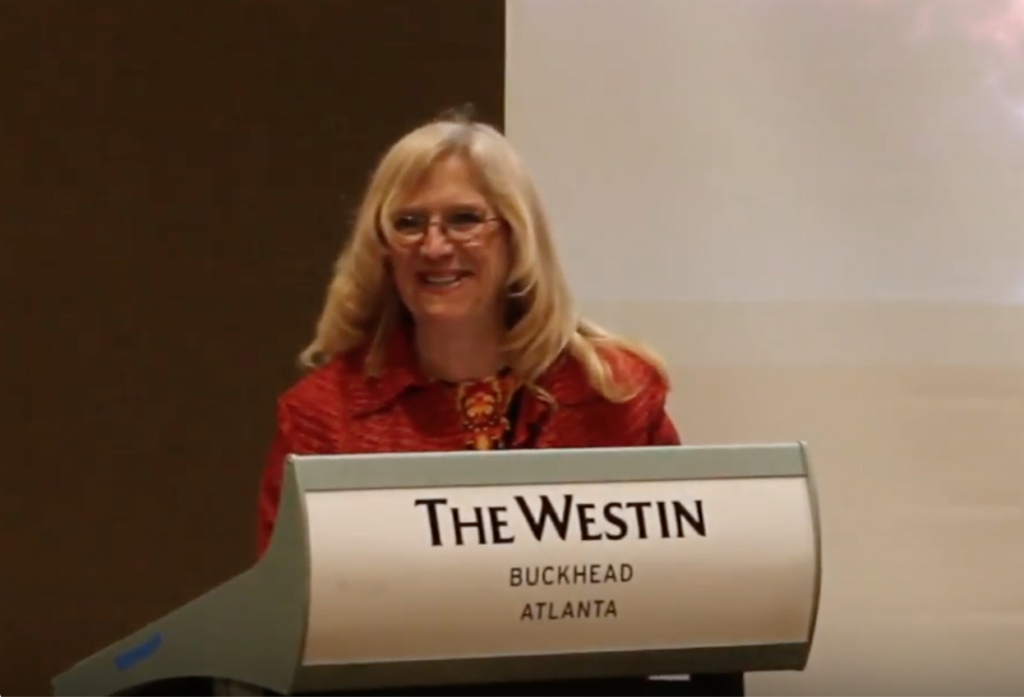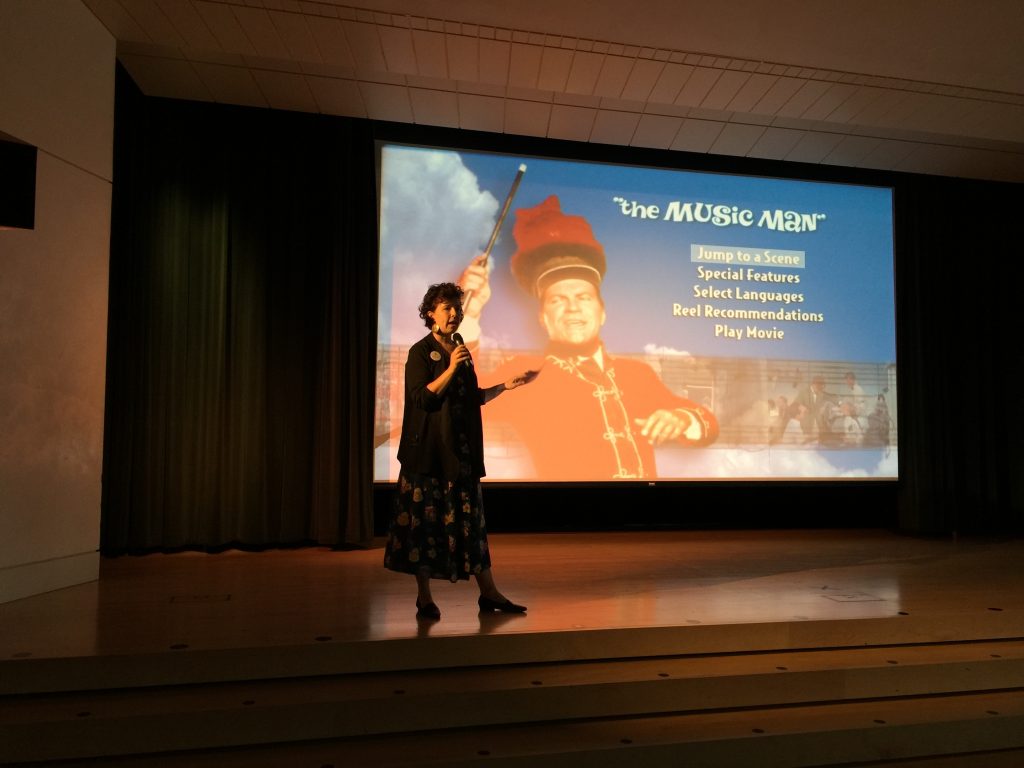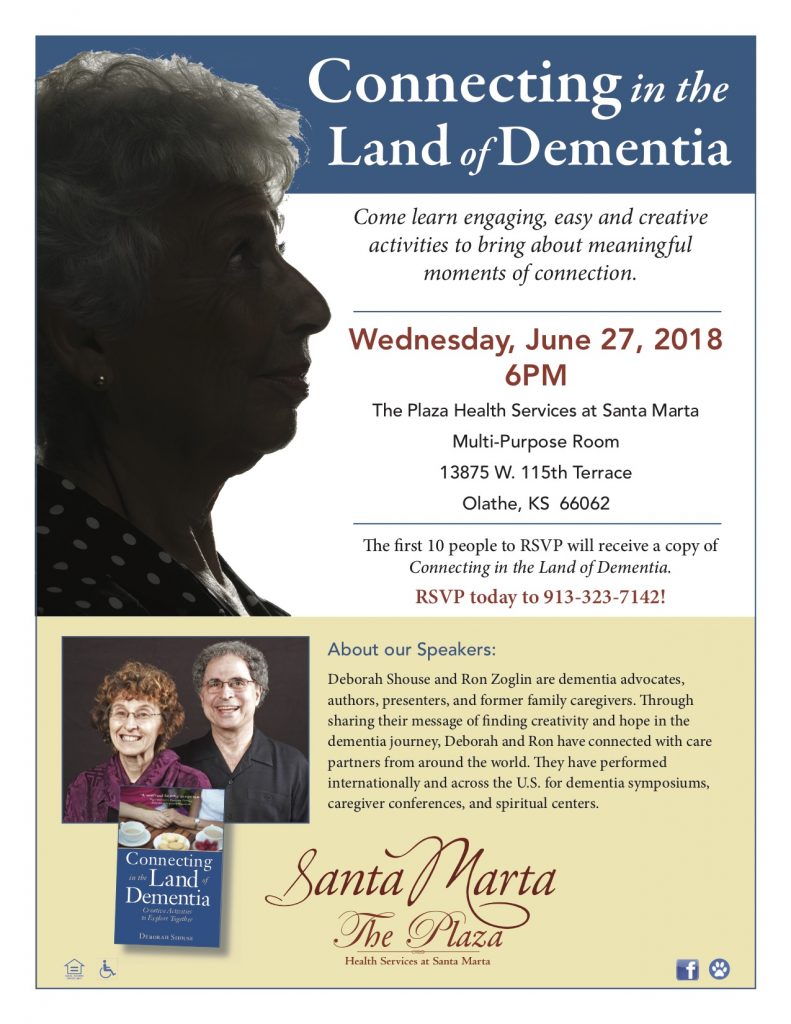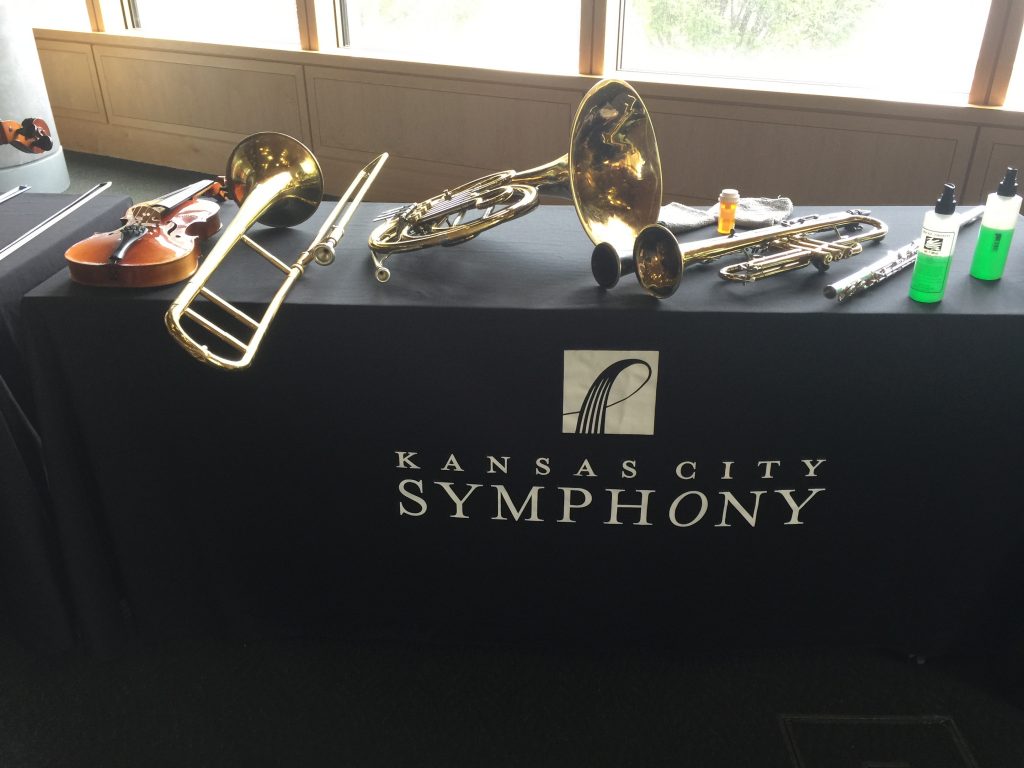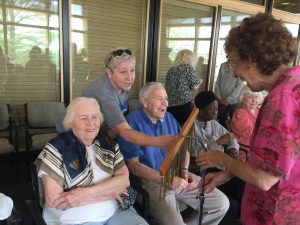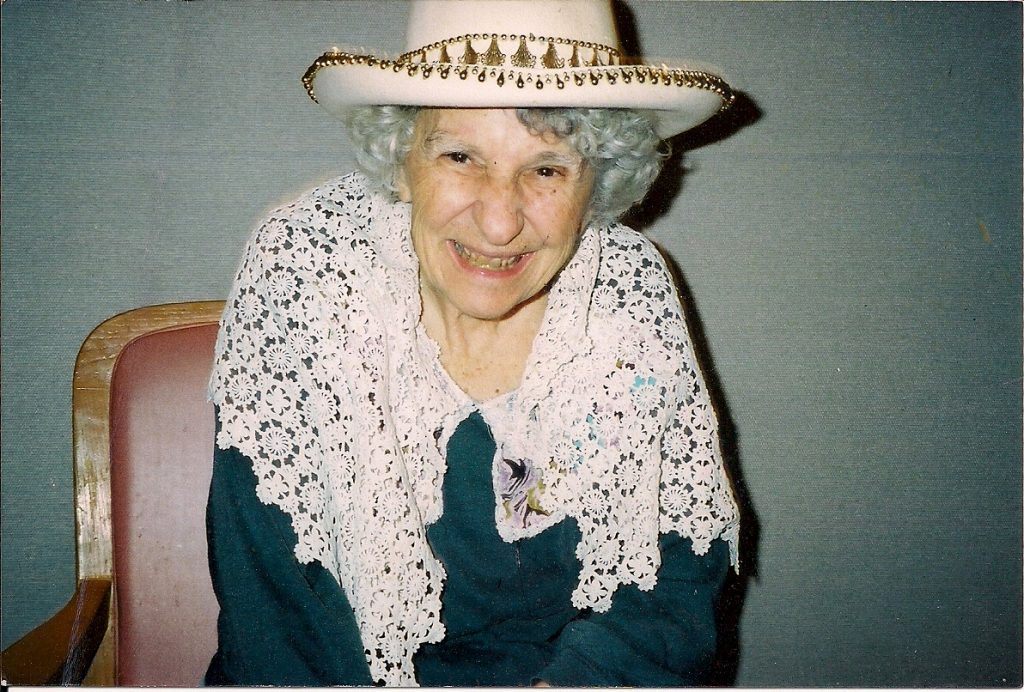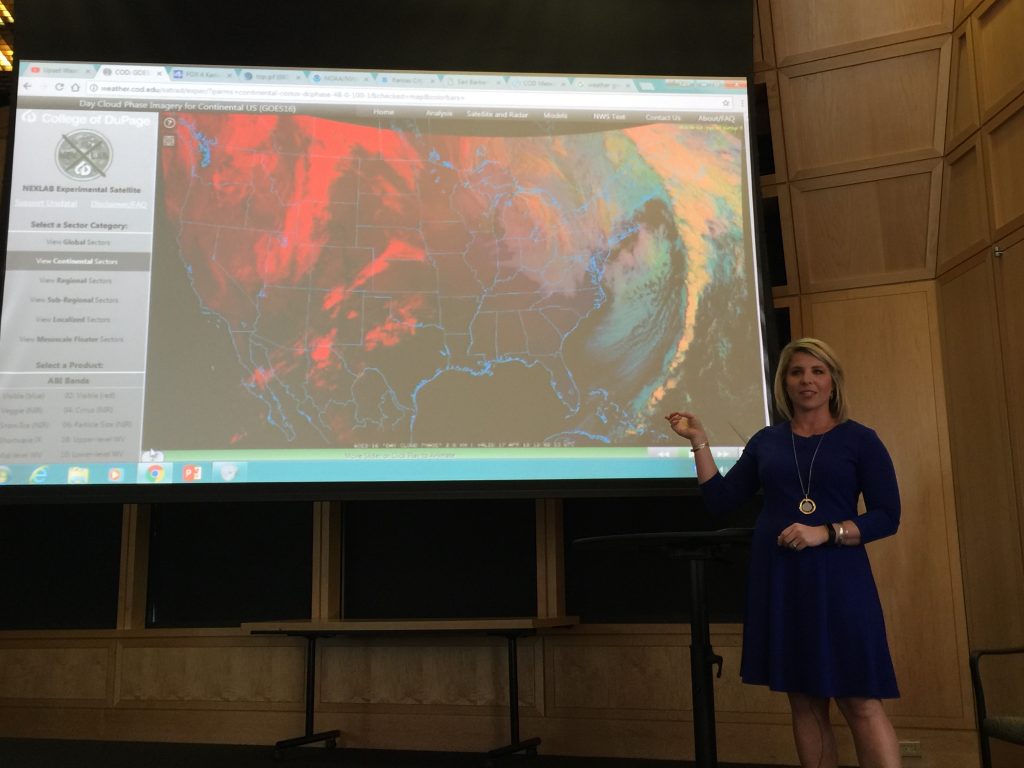Caregiving
International Insights: Caring in Croatia
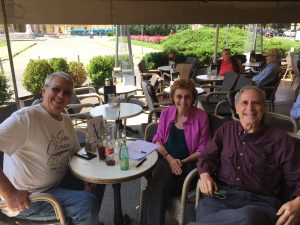 Even before Tomislav (Tom) Huić, Vice president of Alzheimer Croatia had a personal involvement with dementia, he was helping the Croatia Alzheimer’s Society with their marketing. As a professional marketer and co-founder of a successful ad agency, he wanted to help the fledgling, all-volunteer non-profit, and he often offered them his professional expertise. Then his mother began having memory issues and Tom became more involved. Today, he is one of the three full-time volunteers who run the 20-year-old agency.
Even before Tomislav (Tom) Huić, Vice president of Alzheimer Croatia had a personal involvement with dementia, he was helping the Croatia Alzheimer’s Society with their marketing. As a professional marketer and co-founder of a successful ad agency, he wanted to help the fledgling, all-volunteer non-profit, and he often offered them his professional expertise. Then his mother began having memory issues and Tom became more involved. Today, he is one of the three full-time volunteers who run the 20-year-old agency.
We met with Tom at the Hemingway Bar and Cafe in Zagreb, Croatia, 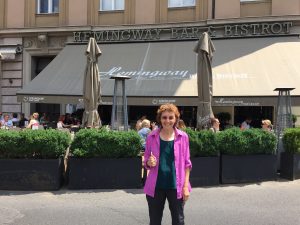 wanting to learn more about ways the society was educating and assisting people across the country and the region.
wanting to learn more about ways the society was educating and assisting people across the country and the region.
“Every year, we offer a professional workshop,” he says. That workshop, plus donations, provides the Association’s only operating money.
Tom understands the importance of collaboration and education. With a grant from the European Union, he and partners created dementia training materials for nurses. They presented the information to healthcare professionals in parts of Croatia and Slovenia. The programs were well received and he is working on presenting them in other parts of the region.
Tom also created a partnership with pharmacists in Zagreb. When elders came in to pick up medications, they were invited to take a short cognition exam. Sixty percent of the participants failed the test and they were given contact information for the Society. But only a handful of those contacted Tom and his team.
“We still have stigma here,” Tom says. “Plus, many people mistakenly think memory impairment is a natural part of growing older.”
They are collaborating with nursing homes and with governmental health agencies to provide guidelines for memory care beds.
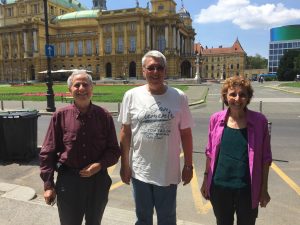 No money. No budget. Lots of ideas. Too few people and too few finances to implement them. The task ahead of Alzheimer Croatia seems daunting. But Tom and his team are not daunted. They are educating family and professional care partners through a variety of pathways, offering much needed information and support.
No money. No budget. Lots of ideas. Too few people and too few finances to implement them. The task ahead of Alzheimer Croatia seems daunting. But Tom and his team are not daunted. They are educating family and professional care partners through a variety of pathways, offering much needed information and support.
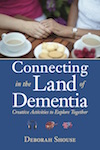
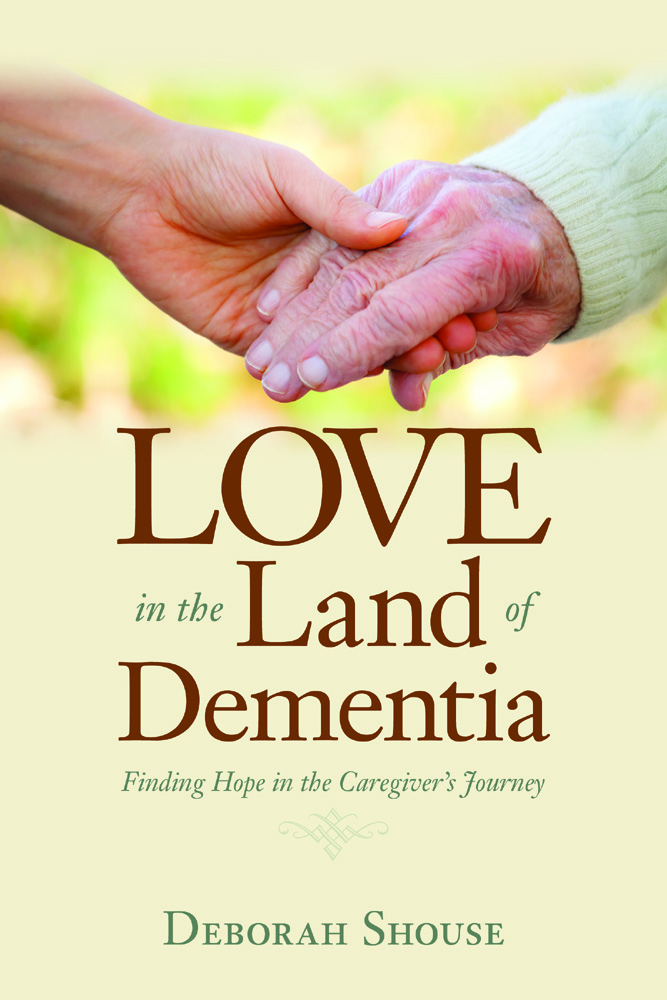
Dementia Friendly Cafes: Inviting Creativity and Connection
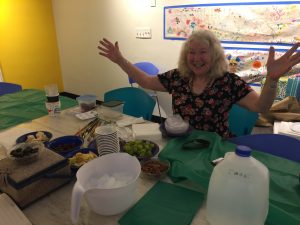 More than 10 years ago, Jytte Lokvig, PhD, was scanning the internet for additional information about dementia. On one of her Google searches she saw the words “Alzheimer’s Cafe” posted by Dr. Bere Miesen, who founded the first Alzheimer’s cafe in Leiden, the Netherlands in 1997. That phrase electrified her. She leapt out of her chair, much to the dismay of her cat, who was cozily sleeping across her feet, and declared, “I am going to make that happen in the U.S.!” She’d been working with people who were living with dementia in community settings for some years, orchestrating art, music, craft and other meaningful projects. But she felt something was missing. That something, she realized, was engagement in the community.
More than 10 years ago, Jytte Lokvig, PhD, was scanning the internet for additional information about dementia. On one of her Google searches she saw the words “Alzheimer’s Cafe” posted by Dr. Bere Miesen, who founded the first Alzheimer’s cafe in Leiden, the Netherlands in 1997. That phrase electrified her. She leapt out of her chair, much to the dismay of her cat, who was cozily sleeping across her feet, and declared, “I am going to make that happen in the U.S.!” She’d been working with people who were living with dementia in community settings for some years, orchestrating art, music, craft and other meaningful projects. But she felt something was missing. That something, she realized, was engagement in the community.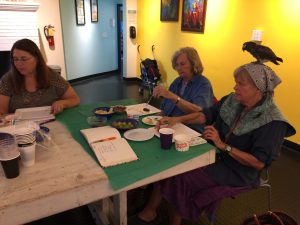 From that inspiration, Jytte created the original U.S. Alzheimer’s Cafe in Santa Fe, NM in 2008. Ten years later, there are more than 300 cafes in the US that invite creativity and connection through dementia friendly cafes.
From that inspiration, Jytte created the original U.S. Alzheimer’s Cafe in Santa Fe, NM in 2008. Ten years later, there are more than 300 cafes in the US that invite creativity and connection through dementia friendly cafes. 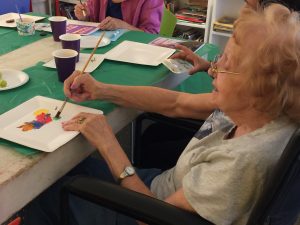 “Would you like a round plate of a square one?” she asked.
“Would you like a round plate of a square one?” she asked.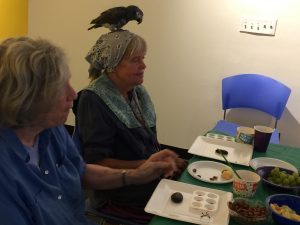
- Arrange a few snacks.
- Invite a guest or two, if you wish. This is an intergenerational project.
- Put a brightly colored plastic covering on the table.
- Squeeze some acrylic paint into a palette. Or use tempura or water colors.
- Offer a choice between two brushes.
- Offer a choice between two canvases: a cardboard paper plate, a river rock, paper, or other.
- Relax and let the painting unfold.
- If your loved ones need a little help, you can paint together. Or you can rest their hand on yours, while you paint to get them used to the movement of the brush.
- Appreciate the art by commenting on the color, the design, the shapes. Don’t ask them to identify the art: enjoy it as it is.
- Weave conversation into your time together.
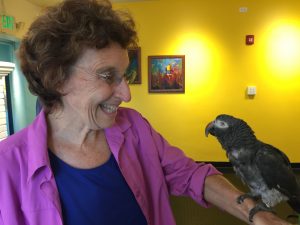
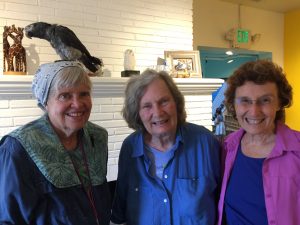
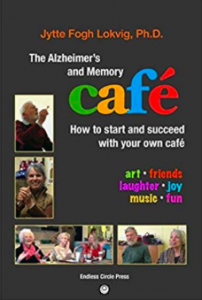


A Stirring Tea Party Brings People Together
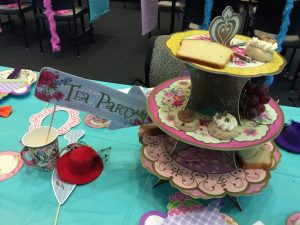 It took us an hour to prepare for our festive tea party and we all enjoyed every moment of it. Jennifer Walker, RN, BSN, Clinical Community Liaison, Kansas City Hospice & Palliative Care, knows how to throw a party. She brought pastel table cloths, a charming complement of paisley-printed cups and plates, along with tiered cookie holders.
It took us an hour to prepare for our festive tea party and we all enjoyed every moment of it. Jennifer Walker, RN, BSN, Clinical Community Liaison, Kansas City Hospice & Palliative Care, knows how to throw a party. She brought pastel table cloths, a charming complement of paisley-printed cups and plates, along with tiered cookie holders.
For the ladies, she offered colorful fascinators (small hats you can clip into your hair) and bright boas. For the men, she had bow ties and top hats. She also brought the ingredients for tea time sandwiches and a variety of cheeses, veggies and meats. Kathi Michaels and Heidi Underwood from Leawood Gardens, and Lainey Berry, from the Law Office of Love & Blomquist, generously provided an array of baked treats, including legendary cookies from McClain’s Bakery and delectable lemon squares.
Our guest speaker, Emilie Jackson from Emilie’s French Teas, shared information about the international history, social rituals, and health benefits that come with sipping a cup of tea. After her talk, everyone set to work creating cucumber and cream cheese sandwiches, with the crusts cut off, of course. We were able to smell several different teas and each person chose a favorite to savor. The food and drink were delicious but even better were the conversations. Each table got into discussions about tea, coffee, life, and more. One guest enjoyed a tete a tete in French with Emilie, who is originally from France. 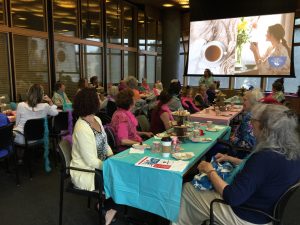
The gathering was so much fun and so engaging, with all the aromas, tastes, and textures, that none of us wanted to leave. It took us even longer to clean up after the stirring tea party, because we had to help eat the leftovers!
Click on this link for the inside story on our tea party: Memory Cafe, Tea Party
Here are a few of our favorite tea quotes:
Where there’s tea there’s hope. Arthur Wing Pinero
If you are cold, tea will warm you; if you are too heated, it will cool you; If you are depressed, it will cheer you; If you are excited, it will calm you. William Ewart Gladstone
I like the pause that tea allows. Waris Ahluwalia
A woman is like a tea bag – you can’t tell how strong she is until you put her in hot water. Eleanor Roosevelt
Please join us for our next cafe when the great Nick Haines brings us the inside story on KC local news. We can’t wait!
Our team, ready for tea
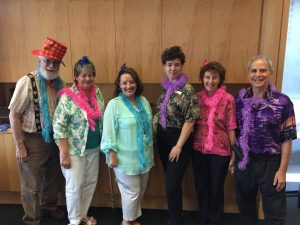
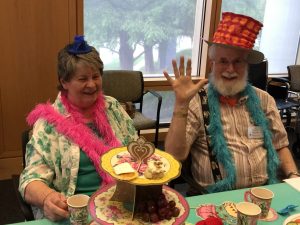
Thanks to our sponsors:
The Kanas City Public Library
The Alzheimer’s Association
The Creativity Connection, Deborah Shouse and Ron Zoglin
Kansas City Hospice and Palliative Care
Arts & Aging KC
KC FilmFest
Prairie Elder Care
The Villages of Jackson Creek Memory Care
Dennis and Carol McCurdy, Community Volunteers
Please email Deborah at myinfo@pobox.com if you need additional information.
And, we hope you can join us for our next events.
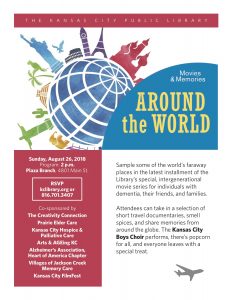
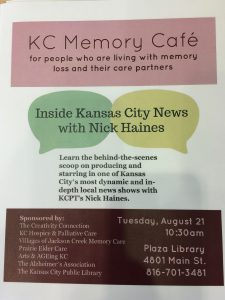


One-Minute Tips to Boost Your Happiness
I am thrilled to be a contributor to Chicken Soup’s new book, The Empowered Woman. I’m going to be featured 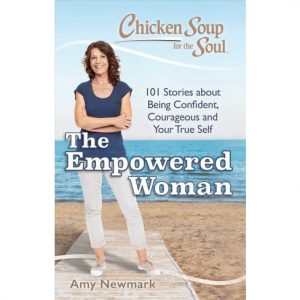 on publisher Amy Newmark’s podcast on May 25, where I talk to her about my “empowered” story and about the dementia journey. Click here to listen to the podcast. Amy is very inspiring and I wanted to share some of her One-Minute Tips to Boost Your Happiness,
on publisher Amy Newmark’s podcast on May 25, where I talk to her about my “empowered” story and about the dementia journey. Click here to listen to the podcast. Amy is very inspiring and I wanted to share some of her One-Minute Tips to Boost Your Happiness,
Speaking of empowered women, Amy Newmark left her high-powered career as a Wall Street analyst to take over the Chicken Soup series. After years of immersing herself in true stories of miracles, lessons learned, and hopes fulfilled, she wrote her own book,Simply Happy. Here are some of her “One-Minute Tips to Boost Your Happiness.”
Amy’s Insights for Care Partners
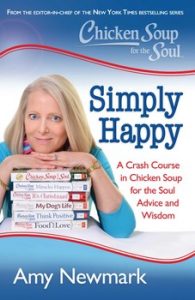 Counting Blessings Adds Up to Happiness
Counting Blessings Adds Up to Happiness
“The gateway to happiness is counting your blessings,” Amy says. “If you’re not grateful for what is in your life, how can you be happy?”
Scientific studies have proven that people who are actively grateful are happier, healthier, and more productive. Plus, they get along better with family members, colleagues, and others.
“You can easily learn gratitude,” Amy says.
To start, each day jot down three things for which you’re grateful. Strive for three different ideas each day. At the end of the month, you’ll have documented nearly a hundred blessings.
“Writing and speaking your gratefulness changes your perception,” Amy says. “You start looking for good things during the day. You can share your blessings with your partner and encourage him to consider his own.”
Some people drop the blessings into a box, and then read them at the end of the day or the end of the month.
Smiling Serves You
Smile even when you don’t feel like it. Often, when you smile, people smile back. This boosts everyone’s spirits and energy. If they don’t give you a grin, it doesn’t hurt you.
“Your smile will change the way people react to you,” Amy says.
Zipping from Zero to 60 Brings Joy
Set a timer for 60 seconds and zip through a task you’ve been putting off. File the insurance policy that sprawls across the dining room table. Unload the dishwasher. Take your vitamins.
“Doing even one of those tasks every day will lighten your spirits,” Amy says.
Dropping Perfection and Embracing Your Own Abilities
Abandon your pursuit of perfection and strive for your own version of excellence.
“When you try to be perfect, you can’t get a lot done,” Amy says. “For most of us, it’s better to do five things at 90 percent than one thing at 100 percent.”
I love Amy’s final piece of wisdom:
“Treat yourself nicely,” she says. “Use the fragrant soap you save for guests. Indulge in a rich bit of good chocolate or a fresh crisp apple. Put the good sheets you save for company on your own bed.
Give yourself a tiny pleasure every day.”
For more happiness boosts, read Simply Happy.


What They Don’t tell You About Dementia: A Guest Post by Laurie Scherrer
Laurie Scherrer is a light in the universe. I met her on the radio, when she co-hosted the ground-breaking program Alzheimer’s Speaks, with Lori La Bey. I was instantly inspired by Laurie’s warmth, honesty, humor, and insights. Each time I talk to her, I have fun and I learn from her. Recently, I asked her, “How can I support you in the wonderful advocacy work you are doing?” Laurie answered, “You can repost this blog, What They Don’t Tell You about Dementia.”
Laurie’s post is not just inspiring: it could be life-changing for someone who is newly diagnosed with dementia. After reading it, you’ll want to subscribe to Laurie’s blog.
What They Don’t tell You About Dementia: by Laurie Scherrer, DementiaDaze.com
When I was diagnosed with dementia (Early On-Set Alzheimer’s and Frontotemporal Degeneration) the doctors told me and my husband:
- My working days were over
- I needed to “Get my affairs in order and see an attorney”
- The time would come when I wouldn’t recognize my loved ones
- For any additional information we should go to the Alzheimer’s Association Website
- I may experience “sun-downing” in the late afternoons
- Come back in six months to see how rapidly you have progressed
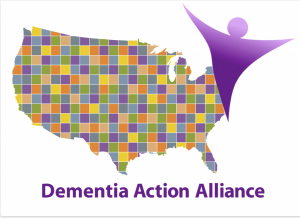 What the doctors SHOULD have told us:
What the doctors SHOULD have told us:
- There are many things that can aggravate or enhance the confusion and agitation that comes with dementia. With observation and patience, you may be able to recognize what triggers these symptoms. For example noise, stress, over-stimulation or lack of sleep. These triggers are not the same for everyone.
- Once you recognize the triggers you may be able to find ways to lessen their impact. For example, use earplugs when in a store or restaurant to reduce the noise, keep gatherings small to avoid over-stimulation, and when needed take an afternoon nap.
- The more independence you give up and allow other people to take care of – the more dependent you will become on others. Change your thought process from “I can’t do this anymore” to “How can I accomplish this task (what changes or modifications can we make to assist me).”
- On days when you are using a lot of cognitive reserve your symptoms may be strong (usually in the afternoon). This is your brain saying it is tired and needs a break. Try listening to some music or taking a nap.
- It is OK to take some time to grieve for your losses and accept that life will change. Most people need to experience this after diagnosis and again as their abilities change. In addition to grief, you may experience shock, anger, denial and sadness. These are normal reactions that can help you come to terms with your disease and hopefully help you to move on.
- Get involved with others with dementia as much as possible. There are a number of groups that offer video chats with other people living with dementia so you can socialize, ask questions and encourage each other. dementiamentors.org offers a mentor program so you can have weekly chats with someone living with dementia.
- Stay active and socialize with old friends and new. Once you curl up into yourself it is hard to get out. Enjoy life, friends, family and activities for as long as you can.
- Build your passion to fight back! Sometimes it is the passion within us that drives us to continue fighting. Get involved in advocacy work to educate about dementia. Contact Dementia Action Alliance at daanow.org to get started.
- You will have good moments when you feel “normal” and think you should go back to work and you will have bad moments when the world is a fog (dementia daze zone). You may feel confused and disoriented and find it difficult to think. There will be times when nothing seems to make sense and you can’t remember how to do things and then the fog will go away (at least for awhile). It’s OK to admit you are having a bad day.
- Dementia is more than memory loss. You may experience problems with your balance, lights flickering in your eyes, hallucinations, develop fears, or smell things that aren’t really there. Don’t be frightened, keep track of any changes or strange feelings to see how often they occur
- Dementia can progress fast, but in most cases it is a long slow progression. You may want to keep your affairs in order, but by implementing changes and strategies you will be able to overcome many obstacles and live a beneficial and happy life for some time.
Since I’m sure your doctor said about the same thing as mine, I hope you find this helpful. Now go enjoy life – Live, Love and figure out how to make adjustments to over come your obstacles.
My motto is: I don’t want just to survive – – I want to live and thrive!

Love & Laughter,
Laurie


76 Trombones Star in June’s Movies and Memories Event
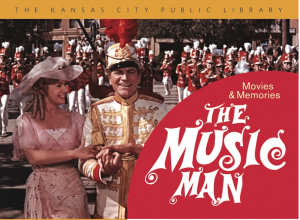 In The Music Man, people flock to hear about the idea for a band. They imagine the shiny instruments, the colorful uniforms, and the scruffy boys in their small Iowa town transformed into revered members of a marching band.
In The Music Man, people flock to hear about the idea for a band. They imagine the shiny instruments, the colorful uniforms, and the scruffy boys in their small Iowa town transformed into revered members of a marching band.
In the Movies and Memories showing of this iconic film, life imitated art. 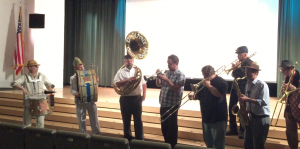 During intermission, the Dirty Force Brass Band marched down the aisles of the Truman Forum, playing a zesty jazz number. People from the first floor of the library raced down the stairs, wanting to get closer to the music. Many of them stayed to watch the second half of the movie!
During intermission, the Dirty Force Brass Band marched down the aisles of the Truman Forum, playing a zesty jazz number. People from the first floor of the library raced down the stairs, wanting to get closer to the music. Many of them stayed to watch the second half of the movie!
This was the longest movie we’ve shown at our series and it was a big success. What a treat to see it on the big screen and to enjoy a very young and adorable Ronny Howard as Winthrope, the agile and the charismatic Robert Preston wooing the melodic Shirley Jones, as Marian the Librarian. And is there anything better that seeing a movie partially set in a library while you’re sitting in a library.!
You can click on this link to get the flavor of the event:
Movies and Memories: The Music Man
“We loved the music,” one family told us.
“This is my daughter’s favorite musical,” a mom told us, smiling at her four-year-old daughter.
“All this is free?” one of our guests said, relishing her popcorn and cookie.
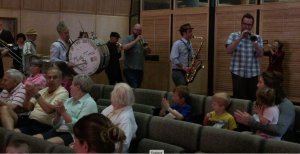
Every two months, the Movies and Memories treats the Kansas City community to a dementia and family friend film, along with live music and delicious snacks, and a surprise at the end. Everyone who attended was excited to take home various kinds of colorful noise makers. #
Please join us for our next dementia-friendly events:
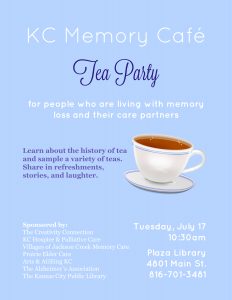
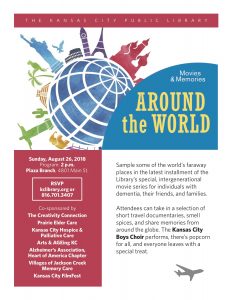
Mark your calendars for these upcoming events:
JULY
Tu 17 – Memory Café: Tea Party
AUGUST
Tu 21 – Memory Café: Nick Haines from KCPT
Su 26 – Movies & Memories: Around the World / KC Boys Choir
SEPTEMBER
Tu 18 – Memory Café: Nelson-Atkins
OCTOBER
Tue 16 – Memory Café: Wornall House
Su 21 – Movies & Memories: Moana, uke players, hula dancers
NOVEMBER
* Wed 14 – Memory Café: Dog & Pony & Pig Show
DECEMBER
Su 9 – Movies & Memories: holiday movie shorts & cookie decorating
Tu 18 – Memory Café: Santa & Symphony
Thanks to all our teammates who help make these gatherings happen:
The Kanas City Public Library
The Alzheimer’s Association
The Creativity Connection, Deborah Shouse and Ron Zoglin
Kansas City Hospice and Palliative Care
Arts & Aging KC
KC FilmFest
Prairie Elder Care
The Villages of Jackson Creek Memory Care
Dennis and Carol McCurdy, Community Volunteers


Connected in the Land of Dementia: Easy Ideas and Free Events
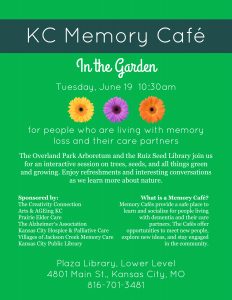
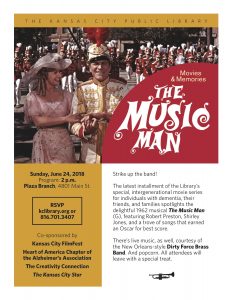


KC Memory Cafe Creates The Sounds of Music: A Visit from the Kansas City Symphony
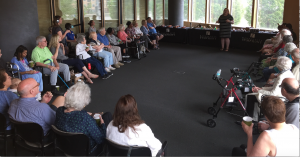 If there’s anything more fun than a one-man band, it’s a one-woman orchestra. On May 15, Margaret Halloin graced the cafe with an astonishing array of instruments. She invoked our inner Itzhak when she introduced us to the versatility of the violin. One moment she used a series of chords to transport us to a hoedown; then she built the tension by creating the sounds of of a chase scene. We were mellow with the cello and sliding cool with the trombone. We could all feel the beat as she tapped and shook a variety of percussion instruments. And then, she invited all of us to play
If there’s anything more fun than a one-man band, it’s a one-woman orchestra. On May 15, Margaret Halloin graced the cafe with an astonishing array of instruments. She invoked our inner Itzhak when she introduced us to the versatility of the violin. One moment she used a series of chords to transport us to a hoedown; then she built the tension by creating the sounds of of a chase scene. We were mellow with the cello and sliding cool with the trombone. We could all feel the beat as she tapped and shook a variety of percussion instruments. And then, she invited all of us to play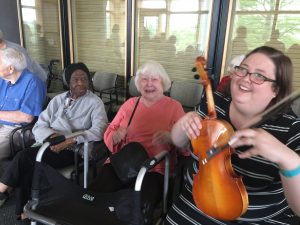 Instantly the room transformed from a quietly listening group of adults to a boisterous band of emerging musicians. One couple beat on a drum together. A woman tentatively held the violin. When Margaret helped her coax a sound of out it, she burst into delighted laughter. People tried the cello, the gong, the bongos, and the French horn. Even better than the sounds of music were the spurts of laughter and the lively conversations. After our chaotic impromptu concert, we gathered in small groups to talk about the music in our lives. One man had been a professional pianist. Several people had played in marching bands. Some had never touched an instrument. Until today.
Instantly the room transformed from a quietly listening group of adults to a boisterous band of emerging musicians. One couple beat on a drum together. A woman tentatively held the violin. When Margaret helped her coax a sound of out it, she burst into delighted laughter. People tried the cello, the gong, the bongos, and the French horn. Even better than the sounds of music were the spurts of laughter and the lively conversations. After our chaotic impromptu concert, we gathered in small groups to talk about the music in our lives. One man had been a professional pianist. Several people had played in marching bands. Some had never touched an instrument. Until today. 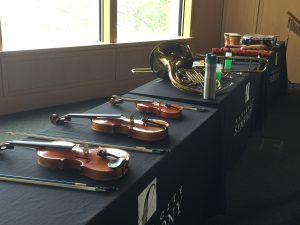
- Invite several musical kids/friends/relatives to come over, tell you about their instrument, and help you make a sound on it.
- Have fun playing imaginary instruments along with a big band or big orchestra music.
- Listen to favorite instrumentals and talk about any memories evoked.
- Look at pictures of various instruments and share stories. Ask open-ended questions with no right or wrong answers, such as, “ What do you think about the piano?” “What are some of your favorite instruments?”
Please join us for our next events:




Celebrating our Mothers
If my mother were still alive, I would be taking her roses and chocolate this Mother’s Day. She would be delighted and her delight would magnify when my daughters and her great-grandchildren arrived. Love is such a beautiful glue, such a simple and strong way to stay connected. I wanted to share this story from Love in the Land of Dementia, as a way of celebrating our mothers.
The Woman She Was
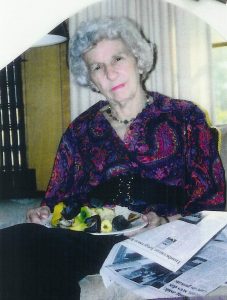 My friend Karen gives me a gift: she says, “Tell me about your mother.”
My friend Karen gives me a gift: she says, “Tell me about your mother.”
We are sitting in a quiet mid-afternoon café and I let the question sink into me.
When friends occasionally ask me, “How is your mother doing?” I have different answers, depending on the situation. If we are in one of those conversations that are like confetti in brisk wind, I say, “She’s okay.”
If we are sitting across from each other and my friend is looking right at me, I answer, “She’s pretty deep into Alzheimer’s.”
“Does she recognize you?” she might ask.
“No, but she may recognize I am a person she likes,” I answer.
That usually ends that conversation.
But “Tell me about your mother,” is an invitation I don’t usually get.
“What would you like to know?” I ask.
She stirs her iced mocha. “Whatever you want to tell me,” she says softly. “I would like to know about her life and her interests.”
Since my mother has been in the nursing home with Alzheimer’s, I have seldom talked about the person she used to be. Occasionally my father and I reminisce about family vacations and outings. I sometimes ask Dad questions about our growing up days and the early days of their courtship. But I rarely think about the woman I knew all my life, the mother, grandmother, artist, gardener, compassionate friend, avid reader, bird-watcher, early morning walker, lemon-meringue pie baker. That woman is gone and I have spent a lot of energy learning to know and appreciate the woman who now commandeers her body.
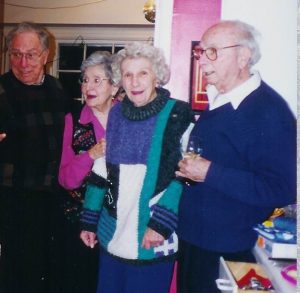 As I consider what I want to tell Karen, I remember visiting my mom’s best friend, Bel, in California when I was a teenager. Bel, who was spunky and adventurous in a way that seemed so different from my conservative mother, drove me from Berkeley to the small resort where I would work as a chambermaid for the summer.
As I consider what I want to tell Karen, I remember visiting my mom’s best friend, Bel, in California when I was a teenager. Bel, who was spunky and adventurous in a way that seemed so different from my conservative mother, drove me from Berkeley to the small resort where I would work as a chambermaid for the summer.
“Do you know how I met your mom?” she asked me, as we drove down the winding roads, past fragrant stands of eucalyptus trees.
“In Iceland, during the World War II,” I said. I had heard stories of the two of them taking a break from their work in the hospital by skiing, then stopping for a soak in a hot springs.
“No, we met earlier in Chicago. We were both nurses working the twelve-hour night shift. The hospital had a room with a couple of bunk beds so we could rest on breaks. One night I walked in there and heard the most heart-breaking sobbing. It was Frances, crying her eyes out. I asked her what was wrong and she said, ‘Nothing.’”
I smiled. That sounded like Mom, never wanting to admit anything was wrong.
“Then I asked her again and she sobbed out that her husband Sam had died six months ago from pneumonia. She was so sad she didn’t know if she could go on. A bunch of other nurses and I were going to Florida for a short vacation and I persuaded your mother to join us. But as it turned out, we never went; a week later I decided to join the Army and I encouraged her to come along. We’ve been best friends ever since.”
When I heard this story at the age of seventeen, I was too young to fathom my mother’s grief and despair. By the time I told Karen the story, I had some sense of what my mother must have gone through.
“Your Mom was really brave, to serve in the Army during wartime,” Karen says.
I feel a little swell of pride. Mom’s tales of traveling in the darkest night on the troop ship, with bombs falling nearby, were so familiar I had never considered her bravery and courage.
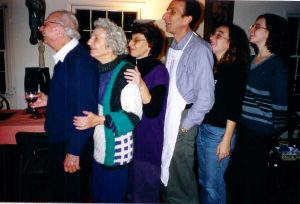 Now I tell Karen how my father, encouraged by Bel’s husband, wrote Mom a letter, telling her he was ready to marry a nice Jewish girl. Was she interested? Was she available?
Now I tell Karen how my father, encouraged by Bel’s husband, wrote Mom a letter, telling her he was ready to marry a nice Jewish girl. Was she interested? Was she available?
After some correspondence, Mom surprised herself by agreeing to meet him in Chicago. At the end of the week, my father asked her to marry him. She considered the offer for three weeks and accepted. Their whirlwind romance was fueled by practicality.
“What a great story,” Karen says. “Your mother must be an amazing woman.”
Sparked by Karen’s interest, I let myself feel my love for my mother as she used to be. I am in tears by the time our conversation ends.
“Thank you for asking me about my mother,” I say to Karen.
“Your stories make me want to call my own mom and hear her stories again.”
As I drive home, I think of more “mom” stories to share with my children and my brother. I see myself, along with my brother and father, as the carrier of my mother’s sacred legacy. I imagine myself tenderly fanning the embers, adding dry leaves and crumbled paper, creating a blaze with each memory. I realize I don’t have to give up Mom’s old self: I can be her historian and her scribe, carrying her stories with me, and making sure they live on.


KC Memory Cafe: Great Weather Information Inspires Great Conversations
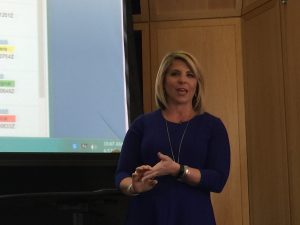 Karli Ritter is a self-described “weather nerd.” When this Fox 4 meteorologist finished her lively talk at April’s KC Memory Cafe, we all had a bit of that “weather nerd” fever in us. We listened intently as Karli described her early morning routine, up at 4:30 a.m., studying the weather maps and data so she could formulate a forecast. She detailed the complexities of being an integral part of a five-hour show: she actually appears on TV 90 times during the Kansas City Fox morning show! Her talk reminded us that great weather information inspires great conversations.
Karli Ritter is a self-described “weather nerd.” When this Fox 4 meteorologist finished her lively talk at April’s KC Memory Cafe, we all had a bit of that “weather nerd” fever in us. We listened intently as Karli described her early morning routine, up at 4:30 a.m., studying the weather maps and data so she could formulate a forecast. She detailed the complexities of being an integral part of a five-hour show: she actually appears on TV 90 times during the Kansas City Fox morning show! Her talk reminded us that great weather information inspires great conversations.
Karli has a love for storms and we were delighted with our “tornado” 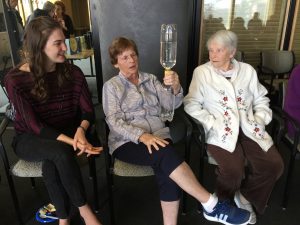 experience, courtesy of the Kansas City Public Library staff. We used a special coupler to link one empty liter bottle with one half full with water. Then we shook and turned it upside down and voila! a little tunnel tornado formed in the water! Each person was fascinated by this experiment. That led us to a conversation about personal weather experiences. Our attendees had gone through hurricanes, earthquakes, dust storms, tornadoes, nor’easter’s and much more.
experience, courtesy of the Kansas City Public Library staff. We used a special coupler to link one empty liter bottle with one half full with water. Then we shook and turned it upside down and voila! a little tunnel tornado formed in the water! Each person was fascinated by this experiment. That led us to a conversation about personal weather experiences. Our attendees had gone through hurricanes, earthquakes, dust storms, tornadoes, nor’easter’s and much more.
Our discussion continued on the way out, with guests describing the varied weather in the Kansas Flint Hills, rainbows they’d seen, family members who loved forecasting the weather, and long hot summers and long cold winters.
To watch our weather wonders, click here.
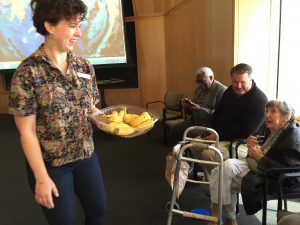
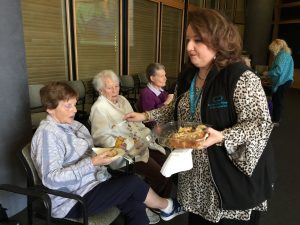 Bringing the weather home.
Bringing the weather home.
To start a weather conversation in your own family or community, use music as a catalyst. Play songs such as: You Are My Sunshine, Stormy Weather, Somewhere Over the Rainbow, Raindrops Keep Falling on My Head, The Sunny Side of the Street, Let It Snow. After each song, ask an open-ended question. “What do you like about snow?” Or,” What seasons do you like most?” Or “Have you ever been in a really big storm?” Or,”What is your favorite kind of weather?”
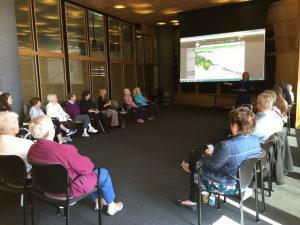
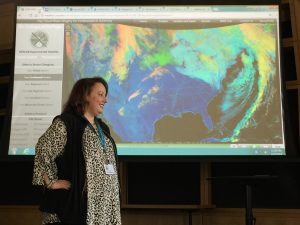 You can also play iconic movie clips that feature weather, such as the joyous tap dancing scene in Singing in the Rain, or the tornado scene in The Wizard of Oz.
You can also play iconic movie clips that feature weather, such as the joyous tap dancing scene in Singing in the Rain, or the tornado scene in The Wizard of Oz.
Dramatic weather photos and pictures can also trigger memories and comments.
Thanks to our Cafe Team and thanks for those who visited.
Our next adventure: May 15, 10:30 to 12:00, Plaza Library
Music to Our Ears: The Kansas City Symphony Brings Us Note-worthy Instruments
You’ve heard them as part of the orchestra. Now you’ll be meeting selected instruments first-hand, as the Symphony’s Margaret Halloin joins us for this delightful interactive session. Enjoy refreshments and interesting conversations as we learn more about the sounds of music.
